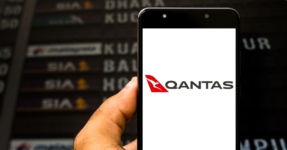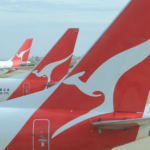Qantas Slammed Over Shady Business Practices

The Australian Competition and Consumer Commission has filed legal action in the Federal Court, accusing Qantas of ‘false misleading or deceptive conduct’.
The consumer watchdog alleges Qantas engaged in such conduct when it advertised tickets for flights it had actually cancelled.
The national carrier has gone into damage control, claiming it takes the allegations “very seriously” and removing the expiry dates from $570 million of flight credits which had been set to expire at the end of the year.
The allegations
The allegations of selling tickets for cancelled flight pertain to those scheduled between May and 2022.
The ACCC asserts that for over 10,000 flights scheduled to depart in that period, the carrier failed to notify existing ticket holders of cancellations for an average period of 18-days, and in some cases for up to 48-days.
The watchdog has also accused the airline of failing to update the “Manage My Booking” web page with cancellation notifications.
The response
Qantas has publicly responded by claiming it is taking them ‘very seriously’, and that it will respond to them in court.
It’s another PR disaster for the airline which has had more than its fair share of bad publicity after posting a $2.47 billion pre-tax profit at the end of June 2023 – the biggest ever profit in the airline’s history, and a significant achievement considering that it was suffering severe losses during the Covid pandemic when global travel shut down.
But despite this, a good deal of ill-feeling towards Qantas remains, much of it stemming from its refusal, despite posting bumper profits, to pay back JobKeeper subsidies it received during the pandemic.
Australia’s most hated airline?
Qantas was once Australia’s official national carrier, and although the Government no longer has any financial stake in Qantas, it is still considered our flagship airline, and its activities attract a high degree of interest across the nation.
Certainly, in recent years the shine has gone from its reputation as consumers line up to complain how slow the process is to get refunds, or how difficult it is to use travel vouchers, the frustration of long wait times on hold to call centres, cancelled flights, lost luggage, and the complexity and non-user friendliness of its frequent flyer programme, to name a few.
Qantas has come under significant scrutiny by the media and also via a Senate inquiry in recent weeks CEO Alan Joyce, whose term at the helm ends in November, has been widely criticised for ‘talking in riddles’ and ‘not answering questions’ in relation to matters such as accusations of price gouging, anti-competitive conduct, the high price of airfares, Covid travel credits and slot hoarding.
However, of all the accusations that have been hurled at Qantas in the past couple of weeks, the allegations by the ACCC of ‘false misleading or deceptive conduct’ are the most serious. And if found guilty, the airline could face significant penalties.
False misleading or deceptive conduct
Many of the laws relating to business activity such as buying and selling goods and services governed by Australian Consumer Law, which is set out in Schedule 2 of the Competition and Consumer Act 2010, which is the successor to the Trade Practices Act 1974 (TPA)).
Section 18 of Schedule 2 outlines that:
(1) a person must not, in trade or commerce, engage in conduct that is misleading or deceptive or likely to mislead or deceive.
- The conduct must occur in the course of ‘trade or commerce’; and
- The conduct must be misleading or deceptive or likely to mislead or deceive.
Trade or commerce means ‘business transactions’ and applies to anyone supplying or buying goods or services. This is a very broad definition, however, it is important to note that ‘false misleading or deceptive conduct’ can apply even if there was no intent behind the conduct and it was aa “genuine mistake.”
The court will also take into account the type and significance of any loss that occurred as a result of the conduct.
Some examples of misleading or deceptive conduct
Examples of misleading or deceptive conduct can include:
- False advertising about a company’s or its competitors’ products,
- Advertising or special offers which misrepresent products or prices, and
- Withholding important information.
There are significant penalties for any business or organisaton which is proven to have engaged in false misleading or deceptive conduct.
For example, in 2022, Samsung Electronics Australia Pty Ltd was ordered by the Federal Court to pay $14 million in penalties for misleading consumers about the water resistance capabilities of its mobile phones
A series of advertisements showed the phone being used in pools or in the surf with the tag line: “Do everything you love this summer on the Galaxy A5. Whether it’s listening to your favourite song by the pool or capturing your Sunday surf session at the beach”.
In fact, pool and sea water could, in fact, damage the phones by corroding the charging ports. Samsung admitted that the advertisements were misleading and paid the penalty.
While the ACCC’s main purpose is to ‘police’ consumer law in Australia – it has the power to investigate and enforce compliance, or take legal action, it does not work on behalf of individual consumers.
Consumers can complain to the ACCC, and have their complaint investigated. If they choose to take legal action against a business they believe has engaged in false misleading or deceptive conduct, then they have a right to seek damages under section 236 of Australian Consumer Law.





